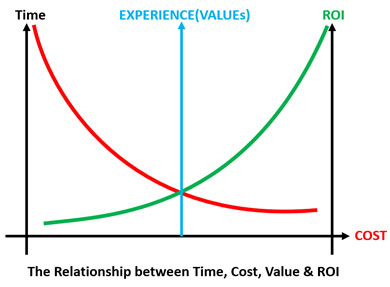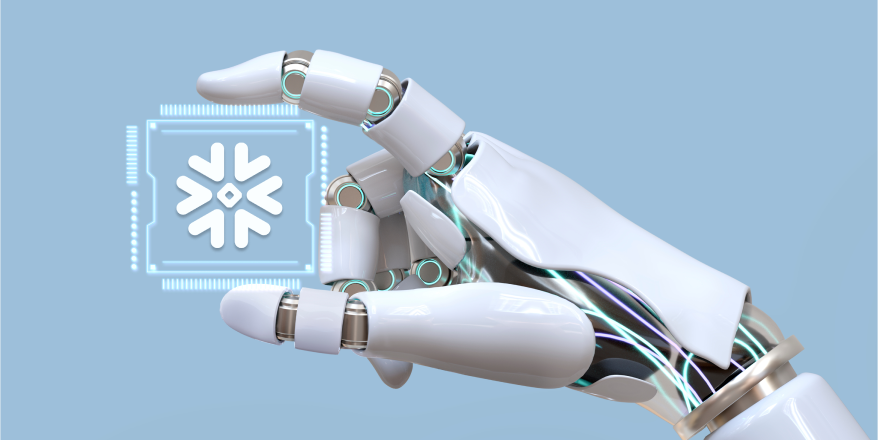Artificial Intelligence, is the NEW BLACK for most people, the way of improving human lifestyle (whether personal or professional) by exhibiting non-natural (human) intelligence with the help of science, research, design and technologies. As the debate on AI continues, one would think it should be a great choice for businesses, consumers, and the society in general as long as one can realize the expected economic benefits resulting from adopting AI.
Economics is by default linked with everything we do, expressly choosing or decision making; based on the suitable measures of return such as VALUE, COST & REVENUE. In a nutshell, is AI a necessity or an option?
Given the current stage of AI adoption, just like for any new technology cycle, one needs domain-specific knowledge, deeper insights into estimation of consumer demand and related trends, opportunities, etc. and what maybe required to create AI solutions which drive the desired outcome(s). In addition, one must plan for resources required to model real life solutions in order to recommend or infuse the use of AI solutions within the specific context.
The economical aspect of AI begins with studying and assessing the targeted end consumer by the following structural considerations,
- Human performance level on the existing task(s) (which is going to be replaced by AI)
- The Value Propositions of desired AI Solutions
- Success criteria
- Data Insights
- Creative thinking to transfer the learnings from Human To Machine with the help of Machine Learning solutions
- The time & resources are extremely essential to invest in modelling the “AI solutions” ; and continuous evaluation/testing in the real world.
- Most importantly, the AI Solution has to be aligned with tangible objectives, so as to measure & realize its impact; to produce economical values for both business & end consumers.
In summary, AI solutions when designed and introduced successfully should bring new experiences for the targeted users and stakeholders and not be ‘just another layer’. Hence I believe, getting an experienced AI Strategist involved in early on in the product conceptualization and design process is fundamental.
The Economic and the Economical values of AI Solutions can only be maximized by bringing in cross-domain know-how an AI Strategist can bring in, right at the “Inception” phase of business opportunity. It is important for this specialist to have an in-depth understanding of the Scientific methods, requisite business strategies and understand the Importance of Design and Execution of AI Solutions in order to create impactful solutions.
Qualified and conversant AI Strategists can help in building productive business cases for optimistic & reasonable AI solutions. It is necessary to envision, design and accurately define scope of impact for AI Solutions right from POC to MVP to Pilot to Rollout and ultimately scale. In the current market situation, Business Executives understand the value domain-experts and AI strategists can bring to help accelerate the process of introduction and adoption of AI solutions which can help maximise business impact and improve ROI of strategic AI projects across the business. Based on our experience, by following above guidelines for defining & implementing AI solutions, one can significantly accelerate time-to-market and optimize the cost of introducing new AI solutions.
Furthermore, AI Modelling, Design and Execution processes have to be standardized. Building awareness on the strategic significance of standardization is key to success in AI space. There are now specific AI Standards such as ISO/IEC JTC 1/SC 42 which can certainly help in this context.
The institutionalization & standardisation of AI will help improve the execution and business impact for businesses, who are looking to leverage AI for competitive advantage. In addition, businesses would benefit from reduced cost of implementation, and better predictability of customer experiences within well-defined target segments.
We all know, when electricity was derived & produced first-time in 1831, it was highly expensive, out of reach from the masses, and risky to take it to the consumer. Gradually it became stable, reliable & affordable as businesses improvised on safety, economical uses of electricity, and co-existence with society, where electricity could be introduced to become part of people’s daily lives – this ultimately drove mainstream adoption. Try to imagine life without Electricity today, the same will hold true about AI in the very near future.

The above diagram explains the relationship of electricity invention, mass production, consumption and standardization and optimization for human adoption vis-à-vis Time, Cost (production/Operation), Value & ROI.
Gradually as time progresses, by employment of best practices, standardization & tactical strategies helps grow the intended values such as Experiences, Convenience, Trust, Reliability & Speed for enterprises and their end-consumers. Similarly, the expectation is that AI would largely follow a similar path, making the desired outcomes of AI-enabled solutions achievable sooner than most of us realize today.
So in summary, to successfully design an AI product/solution enterprises should consider the following steps:
- Define the Steps for building scalable AI products or solutions with a clear economical value
- Involve AI Strategist at the inception stage
- Humanize and Standardize AI Practices

